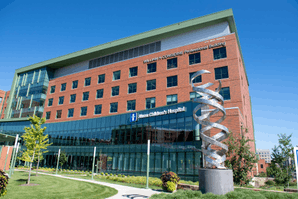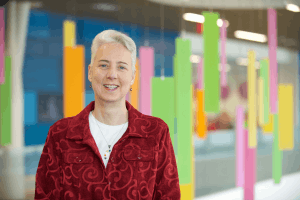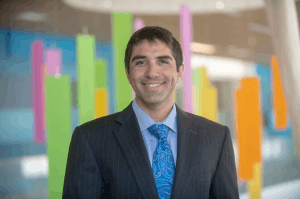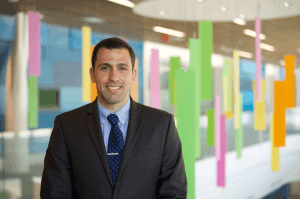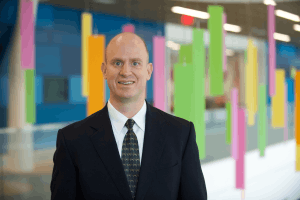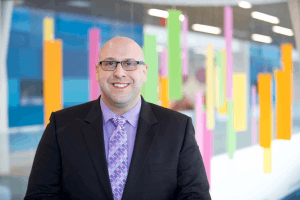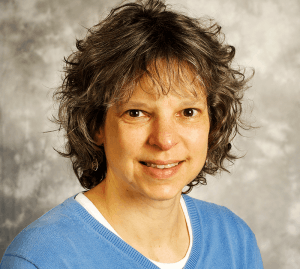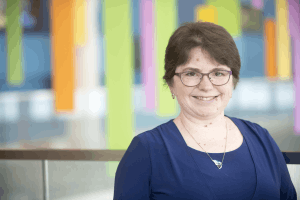Pediatric Neuromuscular Clinic
Back to Physical Medicine and Rehabilitation
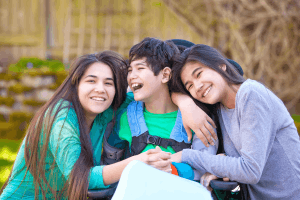
Akron Children’s Neuromuscular Clinic is staffed by a multidisciplinary team of specialists with expertise in chronic conditions affecting the muscles and nerves. We strive to make complex care simpler for families, with combined specialty visits, combined exams, and the full range of telehealth technology.
Learn more...Department: 330-543-2778
About Neuromuscular Clinic
We are also a Certified Duchenne Care Center through the Parent Project for Muscular Dystrophy and we are ranked among the best children’s hospitals in the country for pediatric neurology and neurosurgery.
Neuromuscular Clinic
Akron Children's Neuromuscular Clinic, AkronConsidine Professional Building
215 West Bowery Street
Level 4
Akron, Ohio 44308
Fax: 330-543-8054
Map & directions
More about this location...
Hours
Appointments: 330-543-2778
Department: 330-543-8050
Sarah Elizabeth Friebert, MD
Pediatric Palliative Care Physician; Sarah Elizabeth Friebert, M.D. Leadership Chair in Pediatric Palliative Care
Matthew Ginsberg, MD
The James F. and Marguerite A. Pearson Endowed Chair in NeuroDevelopmental Sciences for Rare Diseases; Co-Director, Neurofibromatosis Clinic; Pediatric Neurologist
Ryan Heksch, MD
Pediatric Endocrinologist; Associate Pediatric Residency Program Director; M & M Conference and Residency Teaching Elective
Debbie Toder, MD, FAAP
Medical Director, Pulmonary Function Testing Lab & Ventilator and Respiratory Technology Program; Pediatric Pulmonologist
Open Clinical Studies
Study of CAP-1002 in Ambulatory and Non-Ambulatory Patients With Duchenne Muscular Dystrophy
For complete information, please visit the study on Clinicaltrials.gov
More about this studyOur specialists can help families select and learn more about clinical trials for various neuromuscular conditions, and we incorporate discussion of clinical trial eligibility into our routine care. You can view a current list of active research studies at Akron Children’s.
Families interested in clinical trials can also search at clinicaltrials.gov.
Diagnosing a neuromuscular disorder can sometimes be challenging. Akron Children’s offers several tests that can be useful in certain circumstances.
Genetic Testing
Our neuromuscular team includes specialists in selecting appropriate genetic testing, obtaining insurance authorization, and analyzing results. We work hard to make sure cost is not a barrier to identifying a neuromuscular condition.
EMG and NCS (electromyogram and nerve conduction studies)
EMG typically involves two components. The first, called nerve conduction studies, involves stimulating nerves through the skin and recording over other parts of the nerve or muscle. The second component involves inserting a tiny pin into several muscles and recording the electrical activity of the muscles. This typically feels like a small pinch or dull ache but is not typically severely painful. Our doctors and technicians are experienced in performing this test in children and aim to make the test as comfortable as possible. We also work with pediatric sedation specialists when needed.
Nerve and Muscle Imaging
Occasionally, imaging tests may be helpful in diagnosing a neuromuscular condition. This may include MRI of the muscles or ultrasound of the muscles and nerves.
Muscle and Nerve Biopsy
In many cases, we can diagnose a neuromuscular condition with genetic testing or other non-invasive diagnostics. However, occasionally a muscle or nerve biopsy may be necessary. Our surgeons and anesthesiologists are skilled in providing safe and compassionate care, and our pathologists and neuromuscular specialists work together to analyze the results.
Programs and Clinics
- Specialty Programs:
- Neurology
Conditions and Treatments:
Duchenne and Becker muscular dystrophy, limb-girdle muscular dystrophies, congenital muscular dystrophies, charcot-marie-tooth disease, spinal muscular dystrophy, Guillain-Barré syndrome, pompe disease, spinal muscular atrophy, myasthenia gravis, congenital myasthenic syndromes, hereditary neuropathy with liability to pressure palsies, HNPP, hereditary sensory and autonomic neuropathy, ullrich, bethlem, McArdle's disease, metabolic myopathies, Emery-Dreifuss, congenital myopathy
Becker Muscular Dystrophy, Charcot-Marie-Tooth Disease (CMT), Duchenne Muscular Dystrophy, Muscular Dystrophy, Myasthenia Gravis, Pompe Disease, Spinal Muscular Atrophy (SMA), Spinal Muscular Atrophy (SMA): Steven's Story (Video), Spinal Muscular Atrophy (SMA): Steven's Story (Video)













